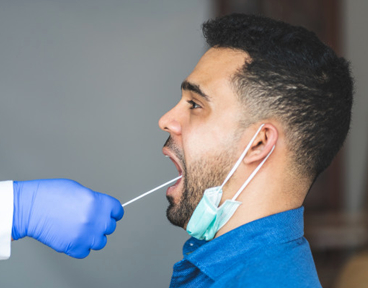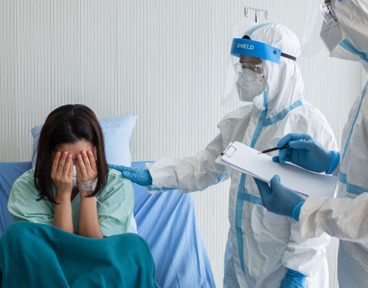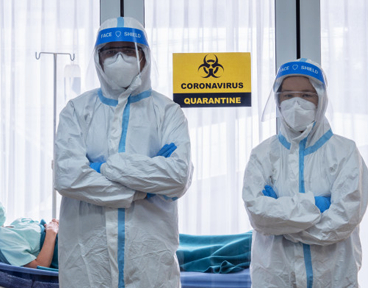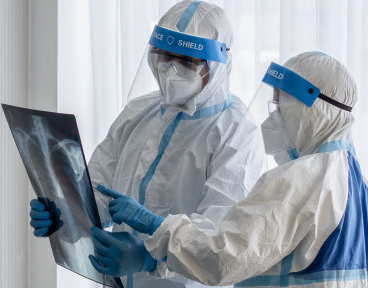Most experts define infertility as not being able to get pregnant after at least one year of trying. Women who are able to get pregnant but then have repeat miscarriages are also said to be infertile.
There are two important facts. First late marriages and post ponding decision to start family. Second stressful life long working hours for both partners causes high incidence of diabetes, high Blood pressure which affects quality of oocytes and sperms.
Both partners should consult the infertility specialist and discuss the following points
- How long they have been trying to conceive;
- Whether there is anything, significant in either partner’s medical history;
- To arrange for semen analysis test;
- To arrange for blood test to check if the female partner is ovulating;
- The results of test should then be discussed with the couple at a later appointment;
- Is the lifestyle affecting the process of conception as in (diet, stress, alcohol, sedentary life and smoking to name a few).
Reasons could be many. Sometimes it is due to problem with male partner, sometimes due to problem with female partner or sometimes with both.
Infertility increases with age in women.
- Female fertility decreases with the age;
- At approximately age 38 years the pregnancy rate using assisted reproductive medicine is halved;
- The miscarriage rate increases with age e.g.: 1:7 ages less than 25years; 25-30 is 1:5 and 36-40 is 1:3.
If pregnancy has not occurred after a year, chances are there is a medical condition causing infertility.
The reason could be either due to the problems with female like:
- Tubal factors – blocked or damaged tubes;
- Ovulatory problems – hormonal factors – may be due to being over or underweight or commonly is due to conditions called PCOS
- Endometriosis;
- Advancing age in the female partner- fertility decreases with age.
- Or with the male partner related to Sperm problems which could again be varied.
- A well balanced nutrition diet 3-4 months prior to conception maximizes the chance of conception and live birth;
- Folic acid then daily reduces neural tube defects;
- Reducing stress improves ovulation and chance of conception;
There are various reports which say that high caffeine intake decreases fertility.
- Smoking increases the incidence of infertility by 3 times;
- Smoking reduces response to fertility drugs;
- Smoking increases the risk of ectopic pregnancy;
- Smoking increase the miscarriage rate;
- Smoking increases congenital abnormalities.
Starting from day-1 of the menses day 10-day 18 (in a normal menstrual cycle of 21-35 days) is the ovulatory phase of cycle; hence chances of conception are highest in this period. Sperms stay alive in the female reproductive tract for 24-48 hours.
- Ovulation becomes infrequent or stops;
- Periods are irregular and/or heavy;
- Natural conception is reduced;
- Therapies to help ovulation are not as successful;
- There are higher chances of miscarriage.
The HSG or X-ray of the uterus and the tubes only tells whether the tubes are open or closed and gives no information about the outsides of the tubes, whether they are stuck down in pelvis, whether there is any endometriosis or evidence of previous infection (both causes of infertility) or disorders of the ovaries, uterus or bowel. A laparoscopy does all these things. Therefore the HSG or X-ray gives some information but can be misleading.
Yes – this is small additional procedure that provides information about the lining of the uterus and the opening of the tubes. This information is critical for ruling out factors that may interfere with implantation of an embryo naturally or conceived using assisted reproductive technology.
Shedding of lining of the uterus every month (Endometrium) in a cyclic manner is menstrual cycle. Normal menstrual cycle is of 21 to 35 days.
The first day of full flow of menses before midday.
Ovulation is a part of a woman’s reproductive cycle in which an egg is released by the ovary in order to travel down the fallopian tubes to get fertilized by the sperm.
Yes, there are kits available in Market which allows you to predict ovulation, your most fertile time of the month.
Ovulation tests work by detecting Luteinizing Hormone (LH) as during the middle of the cycle, LH briefly and dramatically increases and is known as LH surge. Ovulation tests thus allow you to accurately predict when you will ovulate. A positive result on an ovulation test means that the woman will most likely become fertile over the next three days – with peak fertility at 36 hours following the LH surge.
A women’s period will often vary from month to month usually plus minus one week variation is considered normal.
A man’s sperm count will vary. Sperm number and motility can be affected by time between ejaculations, illness and medication and even stress.
The spermatozoa have limited life span and any that remain within the body will die within 24-48hours and be removed by the internal body defenses (the immune system) of the female.
No. actually it may decrease the chances especially if there is a semen problem – motility of the sperm may be affected.
To facilitate sperm production. A slight but sustained rise in temperature can affect fertility by reducing sperm count and increasing the proportion of abnormal sperms being prepared.
Sperm would not survive in plain water for long. Although the seminal fluid would provide some protection initially, the water is very hypotonic to the sperm cells and would soon cause them to swell and disintegrate.
Yes, appointments are necessary and can be made by phoning the centre or after you meet the chief consultant in the centre.
Yes, we always prefer that samples are produced at the centre so that they are analyzed quickly and so there isn’t any environmental stress on the sperms. Center has special Semen collection room for you to produce sample so as to make you feel comfortable.
Results would be ready on the same day by evening.
The concentration of sperm in an ejaculate varies every time even in the same man. Sperm count cannot be increased.
The answer is ‘probably yes’ it can be attributed to the method of processing of the sperms in the laboratory and the special media that is used to process the sample that increases the motility of sperms.
No. in fact, this has a contraceptive effect! It is also associated with a number of side effects. Testosterone should only be used under the close medical supervision, in men with a proven low level of testosterone.
Yes at the present time, having sperm frozen prior to vasectomy could be considered. In skilled hands, microsurgical reversal of a vasectomy gives good results. Sperm aspiration techniques are also successful, but the female partner will than have to undergo IVF treatment. Each case is different and should be discussed with a specialist in reproductive medicine.
Counselling will be made available to curb the initial stress and anxiety. If you should still have difficulties in producing sample the centre will make special arrangements according to your circumstances to help you produce sample.
It is procedure in which hormonal tablets / injections / both given to increase number of follicles which contain eggs.
OPU is a clinical procedure where the mature eggs (oocytes) are removed transvaginally by the clinician for the fertilization in the laboratory.
Depending on the number of oocytes it may take 15 – 20 minutes for the procedure.
Yes OPU is a surgical procedure and requires a very short anesthesia.
Depends upon length of cycle e.g.: in 28 day cycle ovulation should occur on day 14 and fertile time is approximately days 10 to 16 or 12 to 14 days before the expected date of next period.
3-4 hours of rest after the OPU procedure and you can resume your routine.
Fertilization is a process where in a sperm will enter the oocyte to form an embryo.
Under the microscope the embryologist will see the embryo and according to various criteria decide the quality of embryo.
Even sized blastomeres, no fragmentation and symmetrical cell division are the main characteristics of a good quality embryo.
Depending on age of the patient and quality of embryos the embryologist will decide the number of embryos to be transferred. As a policy we never transfer more than 4 embryos in any patients.
Depending on how good or bad the embryos are they are either frozen for future or discarded.
No. It is a very simple procedure.
This procedure does not require any sedation or anesthesia. But in some patients we may require to put the patient to sleep just before the procedure if required.
Yes you are discharged from the hospital you can resume your daily chores.
14 days after the embryo transfer a blood test will be done which will confirm the pregnancy.
There are many factors which determine the chances of success mainly age of the patient and quality of the embryos transferred determine the successes.
Living sperm (Spermatozoa) like other body cells require suitable conditions for survival outside the body. The chemical make up of the fluid medium, in which they are suspended and the temperature at which it is maintained are two key variables. In laboratory sperms can survive for 48 hours after they are processed and sperms can be kept in frozen state infinitely under liquid nitrogen.








